Caught in the 3000K and 4000K LED bulb quandary? Dive into this comprehensive guide, tailored to steer you toward the ideal lighting choice for your home.
- Understanding Lighting Temperature
- Delving into 3000K Color Temperature
- Unpacking 4000K Color Temperature
- 3000k vs. 4000k LEDs: A Comparative Insight
- Guiding Your Choice: 3000K or 4000K?
- 1. Dimming Options:
- 2. Utility
- 3. Health
- 4. Applications
- 5. The Mood-Altering Power of Warm Light/Warm White/Natural Light
- Kitchen Conundrum: 3000K or 4000K?
- The Brightness Debate: Is 5000k Brighter than 3000k?
- Sự kết luận
Dive deeper into the realm of home lighting. Different rooms serve distinct functions, and the right lighting accentuates their purpose. By 2025, LED lighting, a popular choice, is projected to dominate a staggering 76% of the global lighting market.
Considering LED recessed downlights or spotlights? It’s paramount to zero in on the color temperatures of your chosen LED bulbs.
For many, the 3000K vs. 4000K LED debate is a pressing one. However, we’ve juxtaposed these temperatures to dispel any uncertainties.
Understanding Lighting Temperature
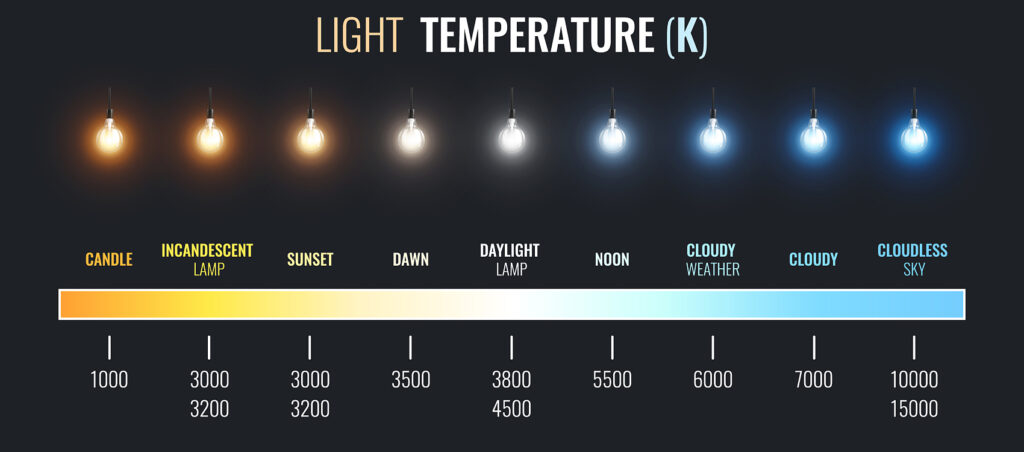
Before delving deeper, let’s demystify lighting temperature. Essentially synonymous with color temperature, it refers to the hue emitted by a light bulb. For instance, an LED bulb might radiate a warm yellow glow at 2700K, or perhaps, mimic natural daylight at 5000K.
In layman’s terms, imagine heating a metal to around 5,000 degrees, revealing a cool white hue. This suggests the LED bulb’s color temperature hovers around 4000K.
Such values, like “4000K Led bulbs,” stem from the correlated color temperature. The Kelvin scale, pivotal in these discussions, extends up to 10000K. For clarity, here’s a breakdown of prevalent color temperatures:
- 2700K – warm white
- 3000K – soft white
- 3500K – neutral white
- 4000K – cool white
- 5000K – bright white
- 6500K – daylight

The crux of household lighting debates often revolves around 3000K and 4000K LED bulbs.
Delving into 3000K Color Temperature
The 3000K LED bulbs exude a warm hue, leaning more towards yellow than white. While different temperatures yield varied colors, the distinction between 3000K and 4000K underscores the former’s yellowish, warm glow.
Interestingly, a 3000K LED bulb seamlessly blends with white, albeit at a slower pace. This warm yellow illumination is optimal for items within the home that benefit from a natural light finish.
For homes bathed in earthy tones, 3000K emerges as the top contender. This color temperature seamlessly integrates with residential interiors. For your information, many interior design aficionados advise against this warmer hue for white kitchens.
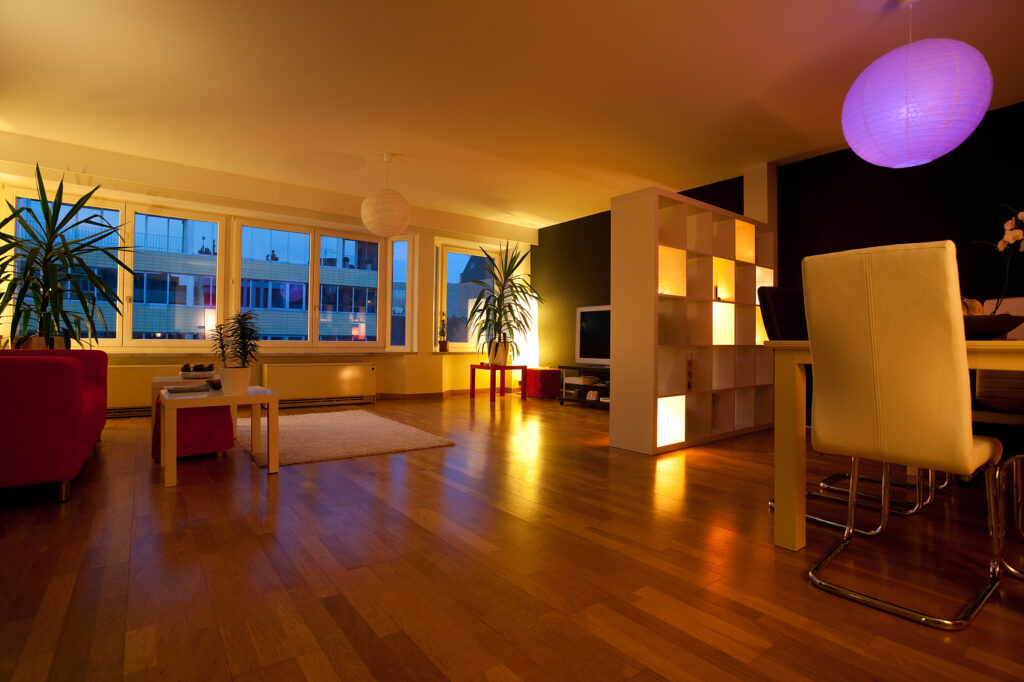
Is 3000K LED Lighting Cool or Warm?
Positioned on the whiter end of the Kelvin scale, 3000K is decidedly warmer and more yellow than its higher-temperature counterparts. Its hue and yellow undertones bear a striking resemblance to the traditional incandescent bulb, making 3000K LEDs a favorite for those seeking a classic ambiance.
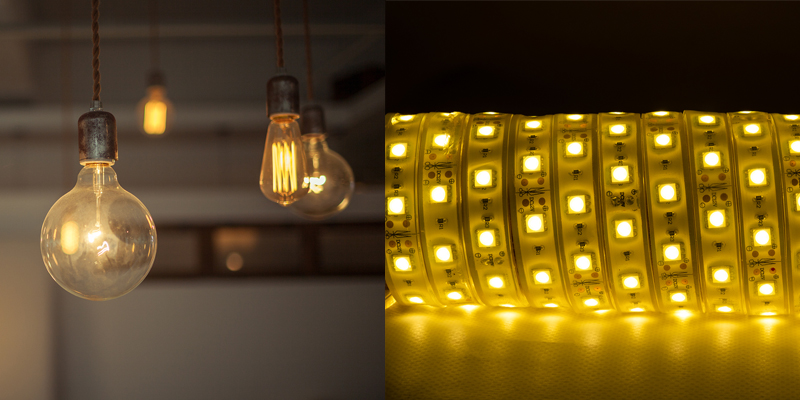
However, bulbs like the 2700K LED exude a more pronounced yellow, especially evident when using energy-efficient COB LED downlights. Such a temperature isn’t ideal for task-oriented lighting.
Unpacking 4000K Color Temperature
In the 3000K vs. 4000K debate, 4000K epitomizes cool white. If your home boasts white interiors, like soft white kitchen cabinets, 4000K might be your lighting holy grail.
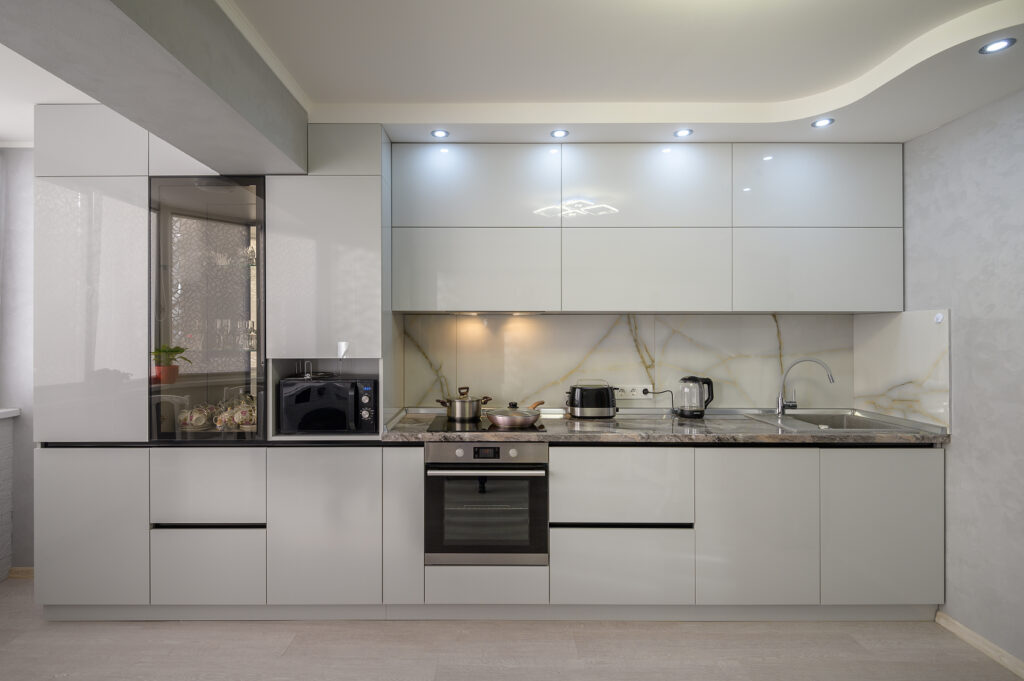
For instance, the 4000K bulb’s cool white hue impeccably accentuates vibrant objects within your living space. This color temperature is versatile, fitting both residential and commercial settings.
Crucially, it beautifully complements white interiors but might not resonate with homes adorned in wood or earthy palettes. Often, individuals gravitate towards a transition from warm yellow to warm white, culminating in a cooler white glow, especially over white surfaces.
Is 4000K LED Lighting Overly Bright?
Straddling between blue and yellow, 4000K LED lights are a boon for those yearning for a harmonious blend of illumination. Many opt for dimmable LED downlights to strike a balance between 4000K and 3000K. These dimmable variants grant users the autonomy to modulate LED color temperatures.
While 4000K isn’t blindingly bright and poses no blue light hazards, it’s apt for spaces like living rooms, bathrooms, and kitchens, especially in homes with a refined aesthetic.
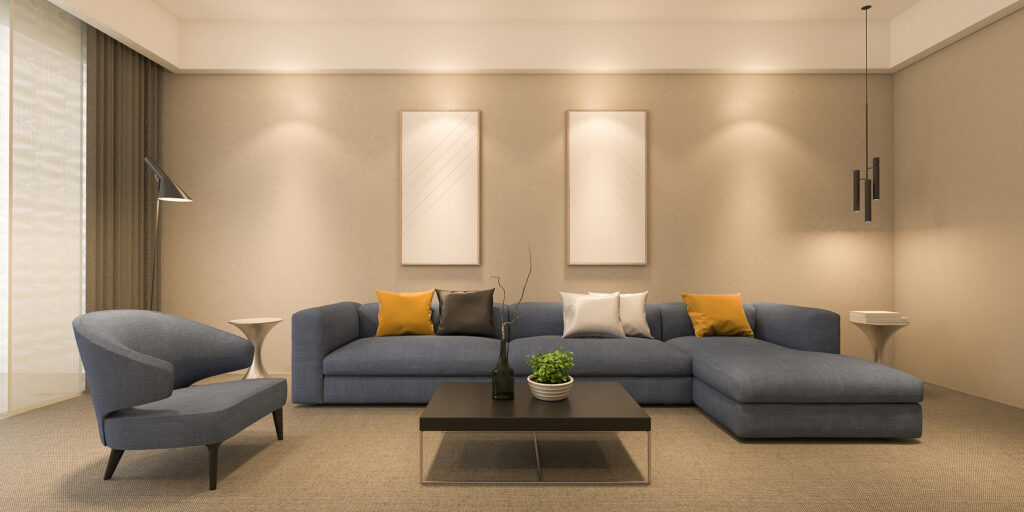
However, 4000K isn’t universally preferred for homes or commercial spaces, as individual tastes differ. Aspiring interior decorators or enthusiasts would benefit from experimenting with diverse light fixtures and color temperatures to discern their ideal match. Contemporary homes often shine in warm or cool white lighting, while traditional homes bask in the glow of warmer, yellow-hued lights. The progression from 2700K to 3000K, culminating in 4000K, resonates with numerous homeowners.
3000k vs. 4000k LEDs: A Comparative Insight
Observing the transition from 3000K to 4000K, one witnesses a delightful shift from warm yellow to cool white. While 3000K is tailor-made for wood-toned homes, 4000K finds its niche in commercial applications.
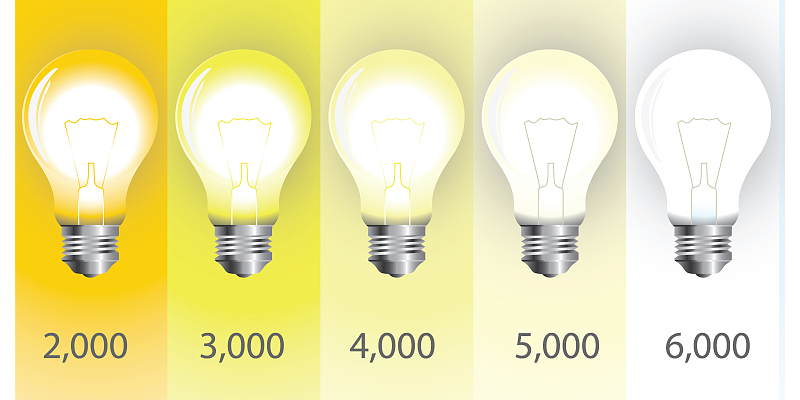
Remember, lights leaning towards warm white or yellow fall below 3000K. Conversely, cooler or brighter lights are 4000K and above. The spectrum between 3000K and 4000K is typified by neutral white. For a clearer perspective, consider this breakdown of 3000K, 4000K, and 5000K:
| Color Temp. | 5000K | 4000K | 3000K |
|---|---|---|---|
| Applications | Security (Outdoor Lighting) | Bathrooms, Garages, Work Areas | Bedrooms, Living Rooms |
| Appearance | Daylight | Cool White | Warm White |
| Feeling | Invigorating | Energizing | Comforting |
Guiding Your Choice: 3000K or 4000K?
Navigating the nuances of the 3000K vs. 4000K debate, several factors emerge as pivotal in guiding your decision.
Firstly, LEDs stand out for their energy efficiency, delivering comparable luminosity as other bulbs but consuming less electricity.
Yet, in the 3000K vs. 4000K standoff, personal preference and home aesthetics reign supreme. Lighting temperatures elicit varied physiological responses. Warm white lighting, for instance, modulates melatonin production, fostering relaxation and priming you for restful sleep.

This explains the preference for warm white lighting during nighttime or relaxation periods. In contrast, brighter lights stimulate serotonin production, invigorating you and sharpening your focus.
For instance, flooding your home with natural sunlight energizes you, propelling you through daily chores.

1. Dimming Options:
Seeking to emulate the sun’s radiant glow? Consider dimming options when selecting your home’s lighting. Options abound, from bright white recessed lights to dimmable recessed lighting. Leveraging this tunable feature, your LED fixtures can oscillate between warm white, cool white, or bright white.
In essence, dimming empowers you to transition between color temperatures, shaping the ambiance of your space. When zeroing in on lighting options, like LED spotlights or track lighting, ensure they align with your requirements. If a consistent color temperature suffices, bypass this consideration and select the optimal lighting.
2. Utility
Utility is paramount when oscillating between 3000K and 4000K LEDs. Different spaces necessitate distinct lighting. For instance, activating warm yellow lights in your living room instantly instills a sense of calm.
Conversely, 4000K white lights, with their heightened clarity, are ideal for kitchens, garages, and bathrooms. Whenever precision is paramount, the 4000K white light emerges as the frontrunner. However, for a more aesthetic appeal, lower color temperatures might be more apt.
For instance, while unwinding in your living room or home office, engrossed in a book, the warm white light not only relaxes but also aids melatonin release. Given that 4000K LED’s white light can disrupt the sleep cycle by impacting melatonin and other sleep hormones, 3000K is the go-to for relaxation.
Interestingly, the warm glow from 3000K LEDs adeptly conceals minor imperfections, like minuscule cracks or blemishes.
3. Health
Health considerations are paramount. Just as prolonged sun-gazing harms your eyes, ill-advised household lighting choices can have repercussions. It’s crucial to be cognizant of potential blue light damage from exceedingly bright white lights.
Excessively bright lights can strain the eyes, potentially culminating in future eye health issues. Incandescent bulbs, while energy-inefficient, emit glares unsuitable for home offices or other spaces.
Lower temperatures resonate more with residential lighting, while commercial applications might necessitate brighter white lights. Given the blue light emanating from a 4000K LED bulb, prolonged exposure can strain the eyes. This underscores the allure of the 3000K light, especially for bedrooms.
4. Applications
Here’s a snapshot of residential and commercial applications, segmented by color temperatures and lighting needs:
- Task Lighting: Requiring acute focus, 4000K LED lighting is optimal.
- Utility Work: For household chores or garage tasks, 4000K LED lighting shines.
- Ambient Lighting: This versatile option can embrace any color temperature, harmonizing with the room’s mood and aesthetics.
- Bedside Lamps: For avid nighttime readers, the relaxing 3000K is ideal.
- Outdoor Lighting: Catering to diverse needs, including security, 4000K LEDs or even higher variants, suffused with blue light, are apt.
- Accent Lighting: To spotlight artwork, 4000K accent lights are perfect.
5. The Mood-Altering Power of Warm Light/Warm White/Natural Light
Color temperature wields the power to modulate mood. A room bathed in warm color temperature, characterized by warm yellow light, can stimulate sleep hormones like Melatonin, facilitating relaxation and sleep. This can expedite your descent into slumber.
Conversely, a room dominated by cool, blue light can invigorate an individual. This is attributed to the serotonin release, which elevates mood and energy levels.

In spaces demanding heightened alertness, be it for work or discussions, 4000K’s white and cool light is ideal. However, for relaxation and aesthetics, softer hues like 3000K LEDs or even lower are recommended.
Kitchen Conundrum: 3000K or 4000K?
If your kitchen showcases white cabinetry or surfaces, cooler color temperatures like 4000K LED lights might be apt. Elevated light temperatures, spanning 4000K to 5500K, can complement your home’s aesthetics and decor.
Most interior design mavens caution against 3000K lights for kitchens, barring exceptionally traditional designs.

The Brightness Debate: Is 5000k Brighter than 3000k?
Undoubtedly, 5000K outshines the 3000K warm white light in terms of brightness. Positioned at the higher end of the color spectrum, 5000K lights are often the choice for tasks demanding acute attention and precision, such as construction or maintenance, ensuring optimal clarity.
However, with 5000K LED lights, the risk of eye strain escalates due to their intense luminosity. Mirroring broad daylight, they’re apt for expansive outdoor venues, parking lots, and industrial lighting setups. The blue light from a 5000K LED can render a room colder than its ambient temperature.

Sự kết luận
Selecting the right lighting can accentuate your home’s interior decor, significantly influencing the comfort you experience. While 4000K is unparalleled for focus and alertness, 3000K is the epitome of relaxation and convenience.
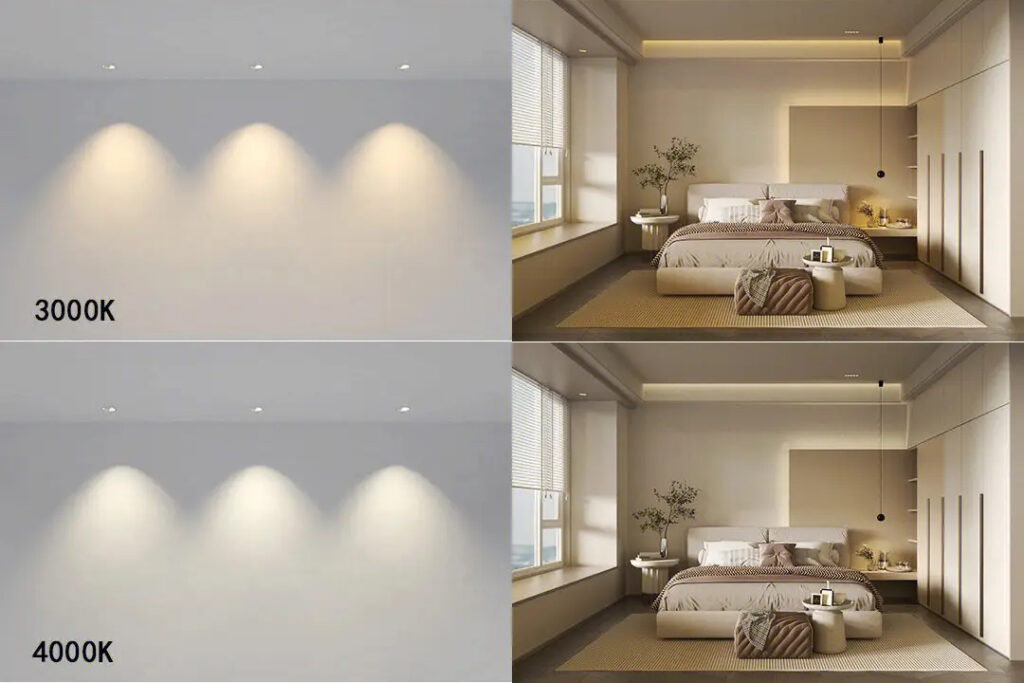
In this guide, we’ve elucidated:
- The nuances differentiating 3000K and 4000K lights
- The significance of 3000K and 4000K lights
- The myriad applications of 3000K and 4000K lights
- A guide to select the perfect lighting for your abode
Illuminate Your Space with boqi LED Driver
Now, armed with insights into prevalent color temperatures, remember that selecting the perfect household lighting is a journey. To realize your desired dimmable lights, partnering with a reputable LED driver manufacturer is crucial. boqi LED driver, a renowned LED driver manufacturer, offers an array of TRIAC LED drivers, 0-10V LED drivers, DALI LED drivers và LED dimmers, lighting controllers, and more.
With its manufacturing hub in China, the company is attuned to its customer’s unique needs. Share your LED lighting requirements with us, and let’s illuminate your vision together.







